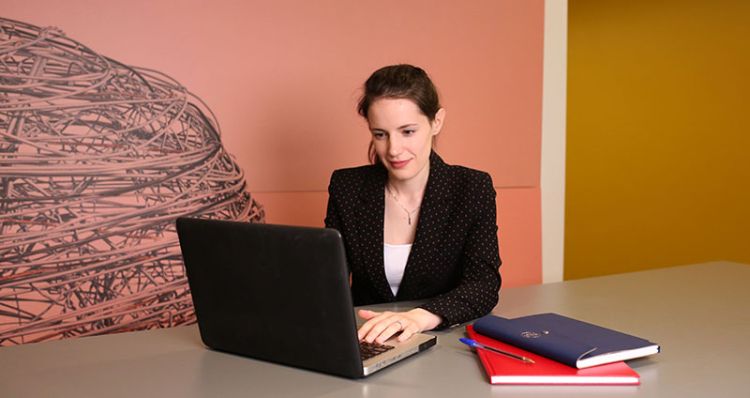Research-based learning

Engage with pioneering research and teaching that is informed by the latest discoveries.
Our academics' globally recognised research feeds directly into our Masters programmes, so you benefit from the latest knowledge and thinking. And you can be sure your tutors are as passionate about your subject as you are. Our research expertise means we can offer a current perspective throughout your course allowing you to deepen your understanding of your subject area. Besides expert subject knowledge, you'll also develop valuable transferable skills that employers look for.
Student Case Study
MSc Biopharmaceutical Development student, Beth Peacock, shares her experience of being a masters student in the Faculty of Biological Sciences and how she has applied her research skills in a commercial context during her 12-month placement at Covance:
"Gene therapy was something new, you get to do some really good things. You are developing a drug and making something safe to make someone better - I think this is the future of science"
Through my Masters, I’ve grown hugely as a researcher and gained skills which I can now apply in industry or further research. I was learning from experts the whole time – at the University and on my work placement – which was a real privilege.
I chose to study a Masters because I realised employers were looking for more experience than I had. My course involved six months’ intensive study at the University, followed by a 12-month paid placement, working on a research project. For me this was with Covance, a multinational drug development company.
I was lucky that I was able to shape my research. That was very satisfying, knowing that my input changed things.
The taught part of the course gave me an invaluable grounding in the whole biopharmaceutical development process, from discovery to commercialising a drug. The work placement was a highlight because I got to apply my knowledge and research skills to a real-life context and learned so many things, from raw data recording to virus production techniques.
My project was based on gene therapy, which is quite a new area and one I really wanted to learn more about. I’ve been involved in developing methods to look at the safety of gene therapy medicines. Once we have these methods it will mean we can ensure the safety of potentially life-saving new drugs.
My Masters has already helped my career progression – I’m about to start a permanent job with Covance. When it comes to applying for jobs you’ve got experience behind you but also established research skills and a breadth of knowledge that not many other people have.
I was lucky that I was able to shape my research. What became my main project was initially a subsidiary project. That was very satisfying, knowing that my input changed things.
With a Masters everything is more independent. It’s about going and actively learning things and filling in the gaps – preparing for a lecture, for example, so you know what’s being spoken about and can answer questions about it.
Our assignments weren’t just reproducing something we knew, we had to go and find out about things, even things we had no experience of – like writing a business plan! That challenges you.
My Masters has taught me a lot. Professionally, I’ve learned lots of new techniques and practical laboratory skills. Personally, I’m definitely more confident and independent. Group work and presentations were a key part of my course, so I got very used to doing them. I’ve learned about patience too. When your research project doesn’t go well, you just have to take a deep breath and start again.

